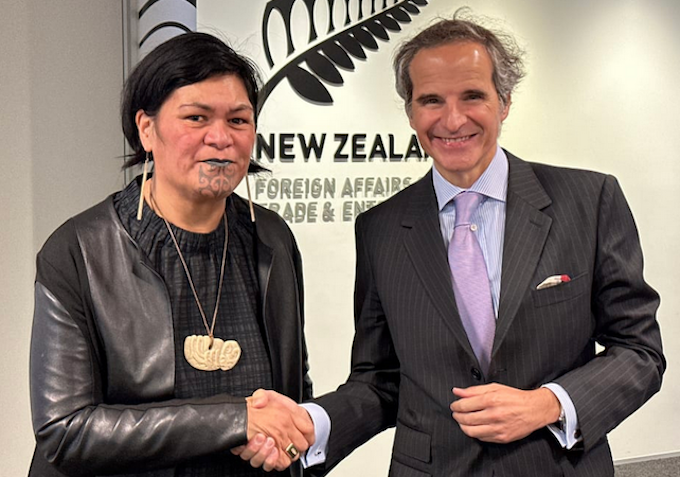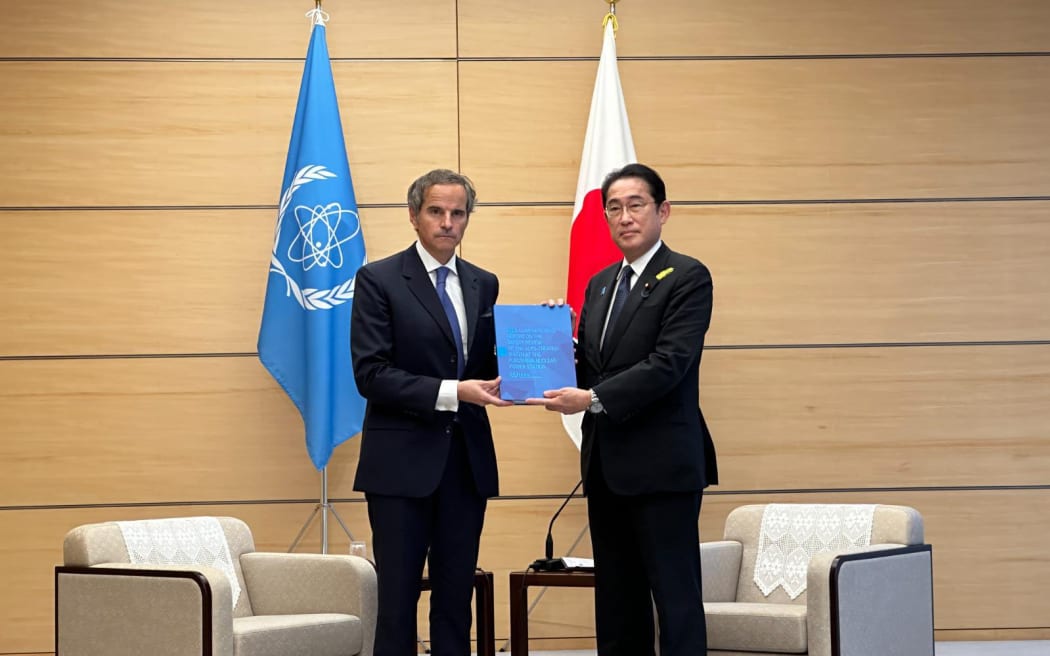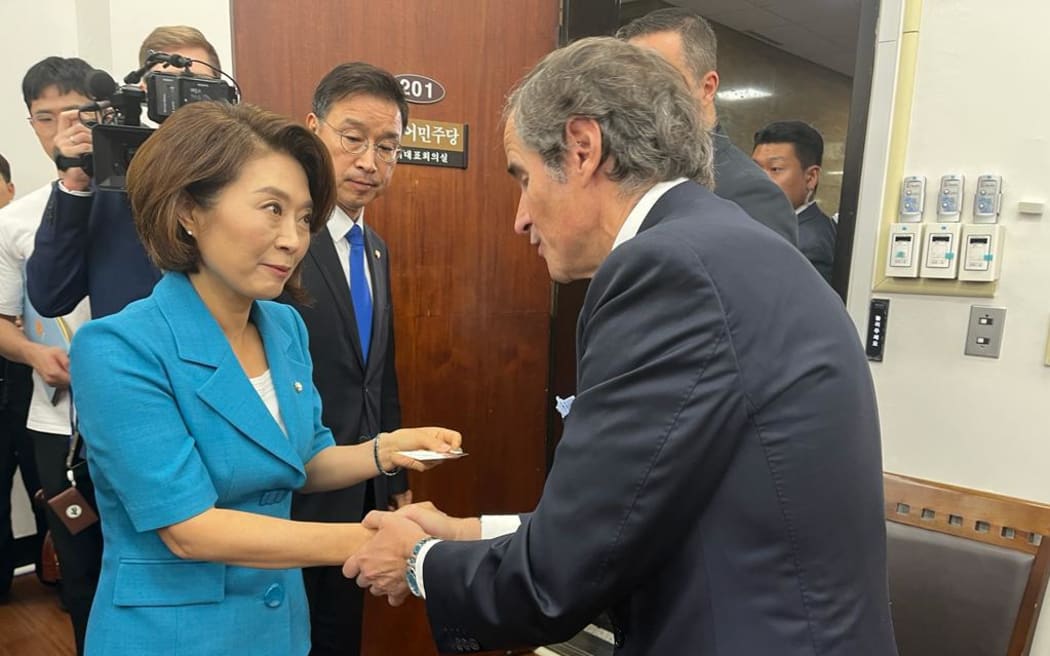
By Lydia Lewis, RNZ Pacific journalist
The head of the United Nations nuclear watchdog has told RNZ Pacific its standards are not outdated.
It comes as nuclear activists raise concerns about the viability of the International Atomic Energy Agency (IAEA) report on Japan’s impending release of over one million tonnes of treated radioactive wastewater into the Pacific Ocean.
The report, released last week, said Japan’s plans for a controlled, gradual release of the treated and diluted water would have a “negligible radiological impact on people and the environment”.
In an exclusive interview, IAEA Director-General Rafael Grossi told RNZ Pacific he stood by the agency’s safety standards.
“The standards are well, and fine. I have to be clear on this; they are not outdated,” he said.
“One of the first things that was done was to analyse, after the accident, whether the existing safety standards needed to be changed, needed to be updated.
“The conclusion was the standards did not need updating.”
Grossi said the parameters set were good enough then, and were good enough now.
NZ continues to ‘stand alongside’ Pacific
Grossi met NZ Foreign Minister Nanaia Mahuta in Auckland on Monday, before travelling to Rarotonga to meet with Pacific leaders.
Anti-nuclear activists have called repeatedly for New Zealand to take a firm opposition standpoint and even take Japan to court under the International Law of the Sea given the country’s long-standing anti-nuclear stance.
“What New Zealand has been very clear about is that there are long standing concerns in the Pacific about nuclear testing and the impact on the marine environment and health of the people,” Mahuta said after the meeting.
“And we recognise that that is a significant set of considerations that must be taken into account.
“New Zealand continues to stand alongside Pacific partners to ensure that their concerns are adequately taken on board,” Mahuta said.
“I am encouraged that the IAEA is taken it upon themselves to engage with the Pacific to hear their concerns, and the nature of their long standing worries about the impact of nuclear testing and their region, the health of the oceans, and gain some further insight about the response to the report,” she said.
Mahuta said she reiterated New Zealand’s full confidence in the IAEA’s advice and commended their science-based approach.

‘Hit on the head again’
While in Japan to release the report, Grossi sat down with 11 mayors, the Chamber of Commerce and the Fishermen’s Associations.
“I have to say that there is mistrust — there is concern,” he said.
Grossi said the fisher-people of Japan were justifiably angry and lacked trust.
“I think it is logical that they feel in this way; they have they suffered once with the accident, and now they fear that they are going to be hit on the head again with this thing. So I have to understand this.”
He wanted be clear, however, that the products from Fukushima were “perfectly fine for consumption”.

In South Korea last week, the head of the UN nuclear watchdog was greeted with fierce protests.
Grossi was asked if the water is safe enough to drink and when he said yes, he was met by anger.
“This is not trying to make this into a farce. But if any water does not contain harmful radionuclides – why not?” he said.
“And there is a check that the water does not contain any harmful radionuclide – [but] there won’t be a reason for somebody to consume it apart from the taste because it would be salty.”
Concrete not an option
IAEA experts had looked at the Pacific Islands Forum panel’s suggestion that the wastewater, treated by an advanced liquid processing system, could be turned into concrete and then used at the Fukushima site as a sea wall.
Grossi said while it was not in their scope to do so, their experts had taken a look “informally”.
“According to our experts, this option in the case of Japan would not be possible,” Grossi said.
Transforming the water into concrete would release vapour “in itself complicating the problem even further”.
Secondly, under Japanese law, the concrete would become “nuclear waste”.
“There have been people, including some of our experts, looking informally into this,” Grossi said.
This article is republished under a community partnership agreement with RNZ.












































